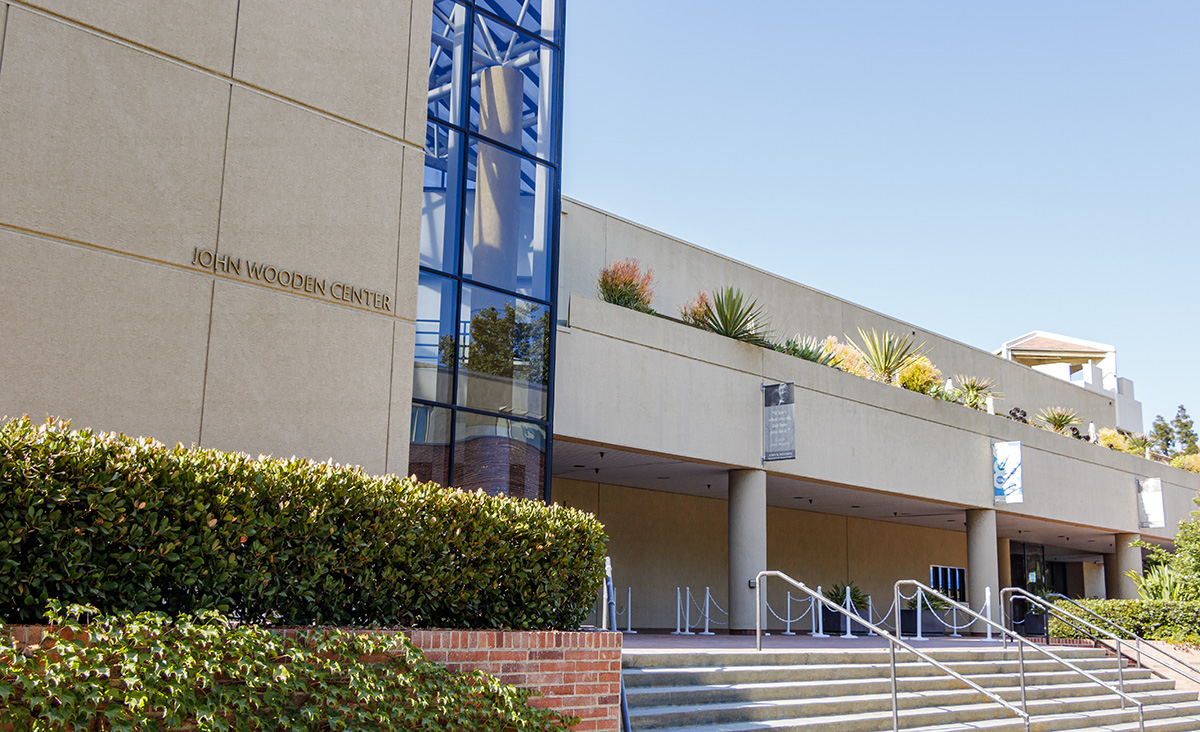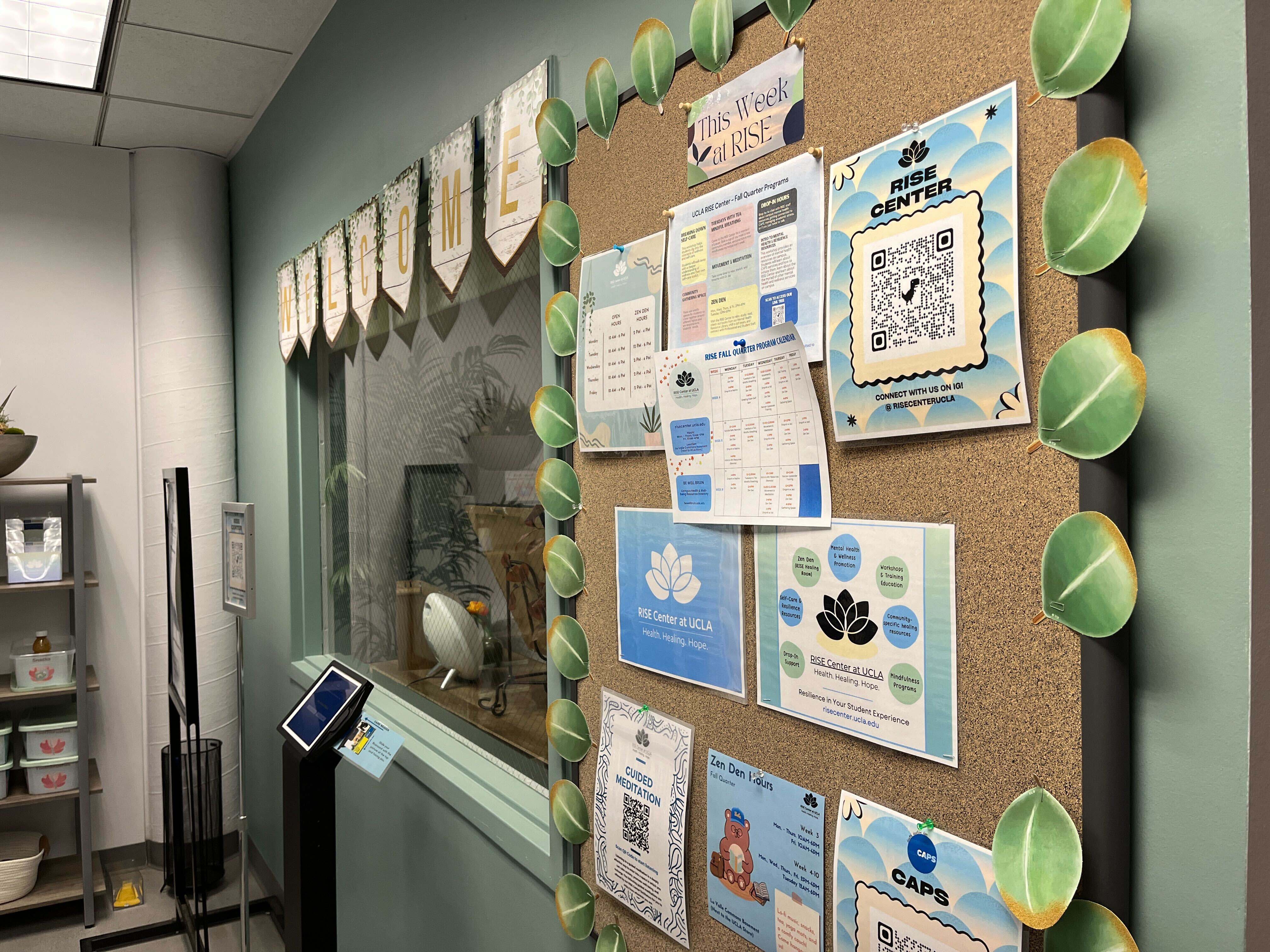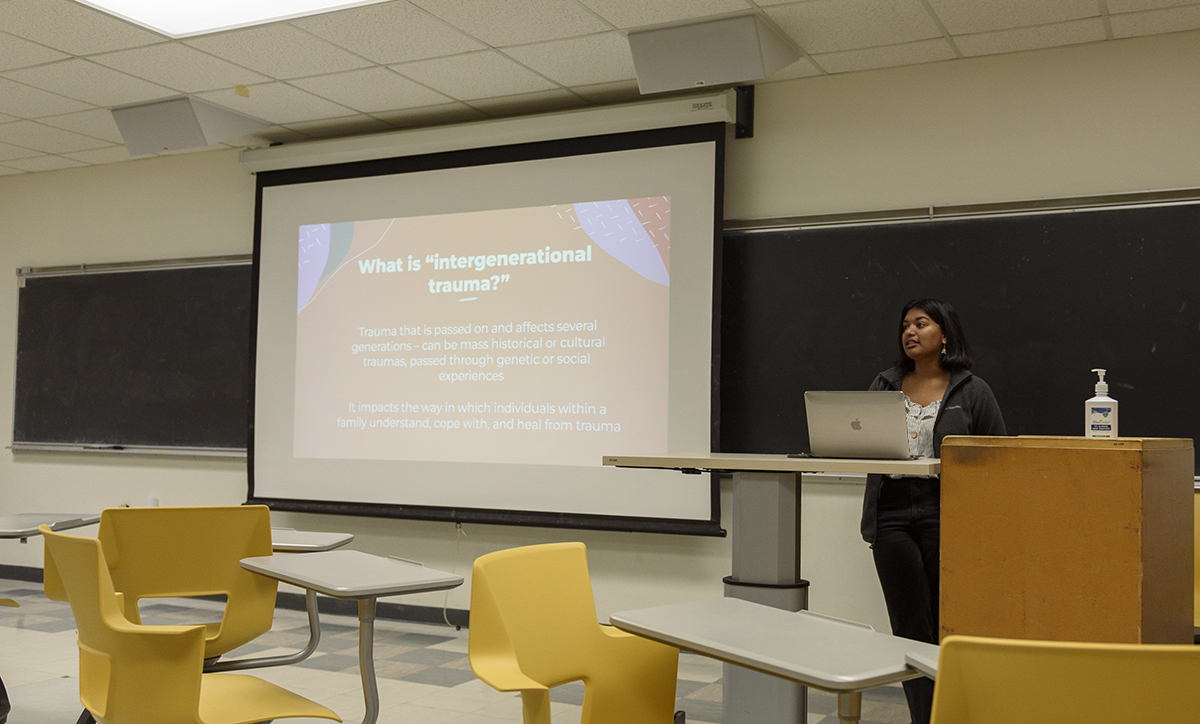Student-led Bruincare initiative uses AI to enhance mental health support services
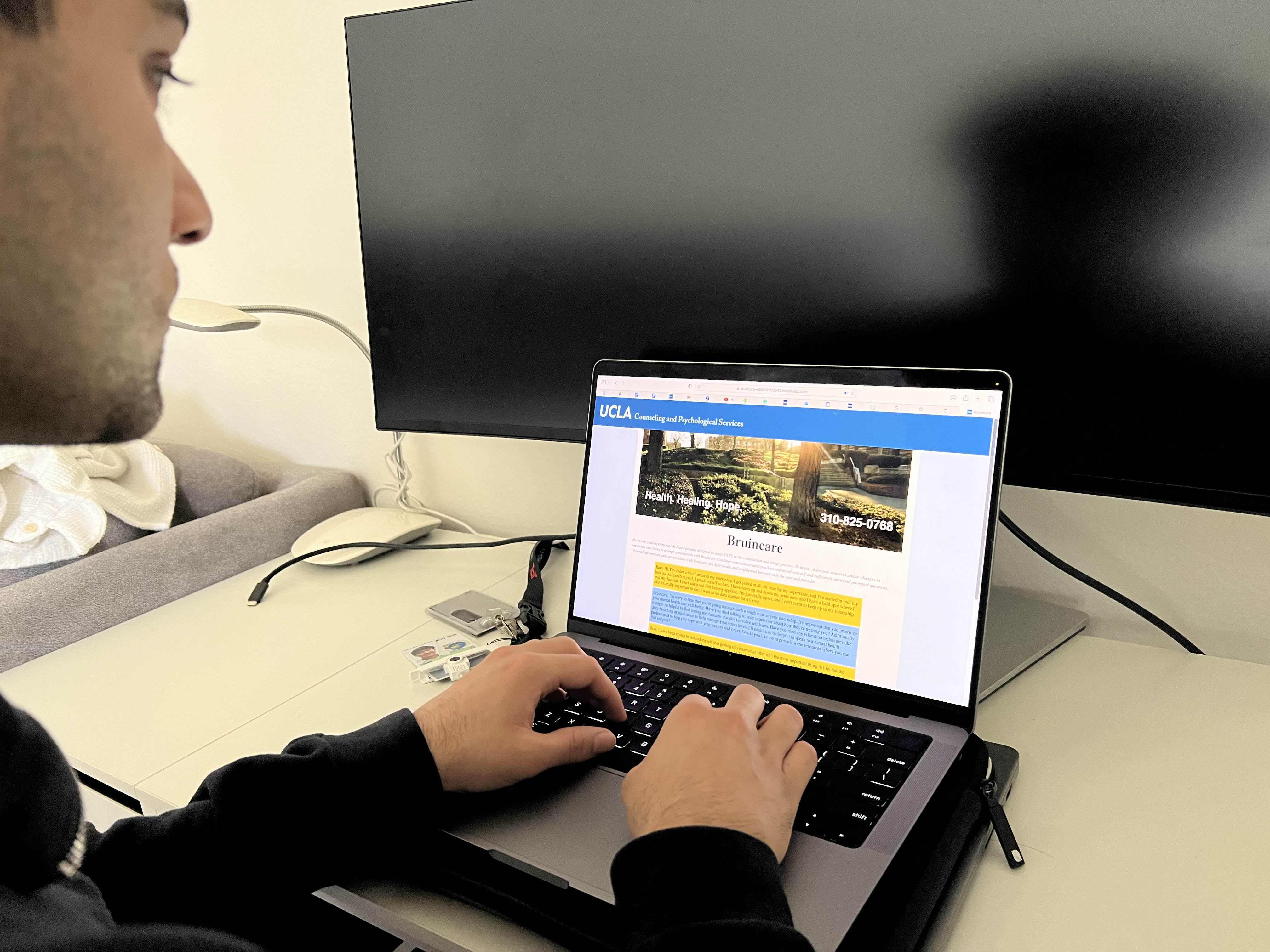
A student using the Bruincare server is pictured. The platform, which is in an initial study phase, seeks to make mental health care more accessible to students through artificial intelligence. (Courtesy of Anish Dulla)
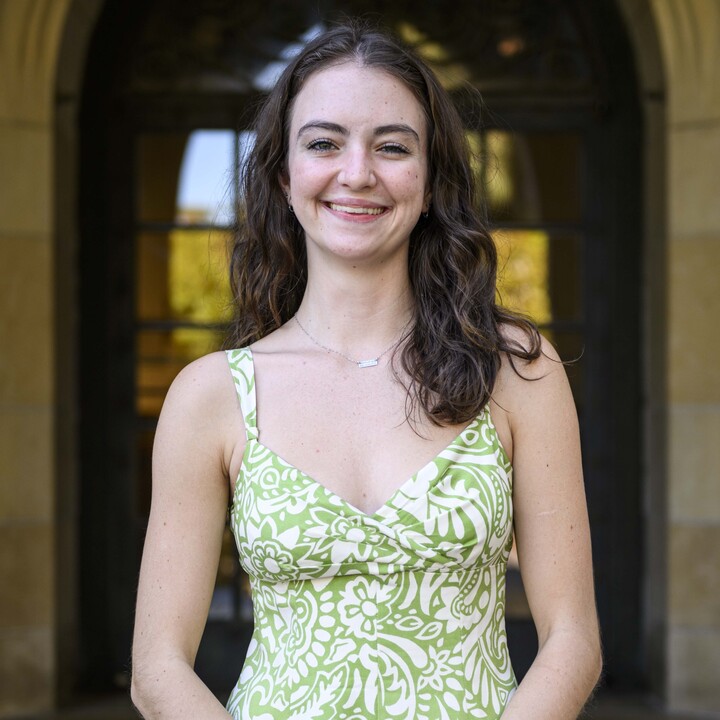
By Catherine Hamilton
April 4, 2024 7:52 p.m.
This post was updated April 4 at 9:01 p.m.
Anish Dulla wanted to make mental health services on campus more accessible – so the fourth-year statistics and data science student turned to artificial intelligence.
The Bruincare server allows for 24/7 access to immediate mental health support and helps UCLA Counseling and Psychological Services with triage and patient support, Dulla said. The server, which is currently in a study phase, was developed in part by the statistics and data science department – including Dulla’s advisor, senior continuing lecturer Vivian Lew. The student-led Bruin Mental Health Advisory Committee led its outreach, along with students June Park and Kai Alcayde.
Dulla said he launched the platform after hearing the experiences his friends had while accessing CAPS services during mental health crises. One of his friends had to wait three to four weeks for an initial consultation, Dulla said, leading him to start planning in September.
The program will allow students to seek mental health care without the potential barrier of having to speak with someone they do not know, he said.
“A lot of students feel like they’re not ready to speak to a person. … People aren’t willing to speak to their family, their friends, so speaking to a stranger or a counselor is also very daunting,” Dulla said. “This is a way for people to get some immediate support without having to feel the burden of judgment.”
The Bruincare server begins by asking the student to share about their mental health and then offers coping suggestions and available services if the student grants permission. After the student finishes using the platform, it provides a report that summarizes the student’s concerns and rates the severity of their symptoms from one to four.
A rating of one indicates more generalized anxiety, and a rating of four indicates the need for serious, immediate care, Dulla said. He added that the score can help providers prioritize triage patients’ care.
In its current stage, the platform allows students to remain anonymous and sends the report back to the student. However, the Bruincare report will only be accessible by a CAPS provider to help them prepare for an initial consultation after the platform officially launches, Dulla said.
Lew said in an emailed statement that she became interested in the platform when Dulla told her about it, adding that she believes it would grant students quicker access to mental health services.
Elena Chan, a co-chair of BMHAC and a third-year psychobiology student, said CAPS reached out to the committee for student input on the idea, specifically as to how to introduce AI into the mental health space. She and her co-chair, doctoral student in nursing Cristina Cabrera-Mino, liked Bruincare as a way to assist clinicians with triage and provide students after-hours care, she said.
Chan added that many graduate students have had difficulties accessing CAPS services during the center’s current business hours, which tend to range between 8 a.m. and 6 p.m. on weekdays. CAPS currently does not operate on the weekends.
“Introducing this would honestly increase the exposure and the availability (of campus mental health resources) because I myself understand that it’s not easy to go on a triage call for a set amount of time during certain hours of the day,” Chan said. “I was really excited about the potential of this AI service created by our own students.”
Despite wariness surrounding the use of generative AI, especially in an area as sensitive as mental health care, Dulla said the platform and information provided to it are secure and private. Chan said Bruincare can be bolstered by complex IT services that ensure information submitted through the platform is protected and encrypted to only go to CAPS providers.
One of the main areas of improvement moving forward will be incorporating UCLA-specific resources and information in the platform’s database, which at the moment mostly relies on open AI services, Chan said.
Dulla said he hopes Bruincare will ultimately ensure Bruins get adequate, timely access to mental health care.
“We’re not intending to replace CAPS or replace any current service. We’re just intending to aid CAPS, provide another tool in the tool belt,” Dulla said.




